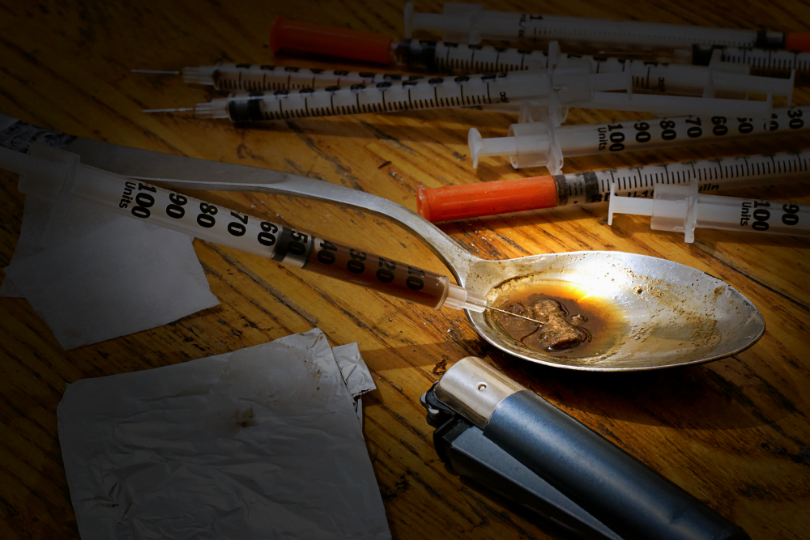Public health officials have called the current opioid epidemic the worst drug crisis in American history.
Chances are, you know someone who has struggled or is still struggling with opiate addiction.
Even thought opiate rehab is not guaranteed to make an addict sober, it is the push most need to start over and stay sober.
Read on to learn about what to expect when you or someone you care about checks into rehab.
Detox
Many people avoid opiate detox centers entirely because they’re afraid of having to endure the withdrawal symptoms that accompany detoxing. Others believe there is a magic method to cure their addiction such as drug detox under anesthesia, more commonly known as an ultra-rapid opiate detox (UROD) which entails the withdrawals taking place while the patient is under anesthesia. However, this process comes with many severe risks and at a hefty price tag of $15,000 or more.
Depending on which opiate addiction treatment center you choose, you may be required to detox before you arrive. Other centers have medical detox wings that help you comfortably flush out all the substances in your body. Medical centers can provide you with medication that will help ease the more intense withdrawal symptoms.
The severity of your detox symptoms depends greatly on your drug of choice and how often you use.
Common opiate addiction withdrawal symptoms include:
- Nausea
- Muscle aches and pains
- Insomnia
- Sweating
- Vomiting
- Anxiety
- Cramping
- Increased heart rate
Although it’s often painful, detox may be the most important step in your recovery. You can’t hope to stay present or gain anything from your counseling while still under the influence of opiates.
Besides, the goal is to stay detoxed forever. If you’re concerned about your own detox, see if you can find an opiate rehabilitation center that provides a medical detox center. This will help make your transitions easier.
After a successful detox, the real rehabilitation work can begin.
Evaluation
The beginning of your stay at your rehab facility of choice always starts with an in-depth evaluation. This includes gathering information about your family medical history, your own history of drug abuse, and sets goals for your stay at rehab.
You may have detoxed yourself at home or just came from the same facility’s detox center. Either way, your evaluation will include a physical examination to be sure all traces of opiates are gone from your system, and you’re at adequate physical health to continue with treatment.
If you’re attending an outpatient rehab clinic, you’ll be able to go home at the end of every day of counseling and treatment. If you chose to check-in to an inpatient therapy center, you’ll be given a tour of the facility and shown where you’ll be sleeping immediately following your evaluation.
Everyone at your facility is there to help you. Even if some of the staff members rub you the wrong way, keep in mind they are there to help you succeed in staying sober. You’ll likely be introduced to staff and patients at the facility following your evaluation.
In total your evaluation will only be a small part of your stay at rehab. It’s up to you to stay focused and learn what you need to learn to stay healthy after you leave.
Limited Communication
Keeping in touch with family and friends is important, but so is your recovery.
Since cell phones are so often used to pick up opiates, most inpatient opiate rehab centers require patients to hand in their cell phone upon arrival. Phone calls with important family members and friends are limited to certain days and times and are made from a phone provided by the facility.
It’s important that your time at rehab is spent focusing on recovery and not your social life. This is why most people attend rehab centers quite far from where they live, and social visits during short 30-day programs are not common.
Other forms of communication like email will also be closely monitored. Remember, rehab is a short time dedicated entirely to helping you save your own life from a debilitating habit. Although it may be hard, it’s important to cut out all other social distractions and focus on yourself during your stay at an inpatient or outpatient opiate rehab facility.
Besides, spending less time on chatting with old friends will give you more time to focus on your own therapy and counseling.
Counseling
Specific treatments will vary greatly depending on the opiate rehab facility you choose.
Most rehab centers offer a variety of treatments, including but not limited to:
- One-on-one counseling
- Group therapy
- Family therapy
- 12 step programs
Counseling may be the most crucial part of your stay at an opiate addiction treatment center. This is where you learn about why you started using, your triggers, and how to stay clean.
For most people, addiction is an unconscious reaction to stress and not something they ever put much thought into. Through cognitive behavioral therapy and practical advice, addicts can become mindful of all their actions and avoid situations that may lead to relapse in the future.
Counseling also helps participants figure out and remember their own powerful reason to stay clean. If everyone could figure out why they should quit and stay sober on their own, rehab wouldn’t need to exist. Listening to others talk about their reasons for getting sober may be just what you need to make a permanent change in your life.
If you have a close friend or family member in counseling for opiate rehabilitation, check out this blog post to see how you can best support them.
Find Your Opiate Rehab Center Today
If you or a loved one are considering enrolling in an opiate addiction center, it’s important to act fast.
Detoxing, giving up cell-phones and email, and sitting through counseling can seem daunting. But with the right support system, it may be just what you need to start the road to recovery.
You only have one body and one shot at life, so it’s important to take care of yourself. Don’t wait.
For a helpful list of both private and publicly owned substance abuse facilities, check out our website.
You or your substance addicted loved way may qualify for special facilities or payment plans specifically for Medicare or ex-military patients.
It’s never too late to get clean.
Here’s to your health!


















